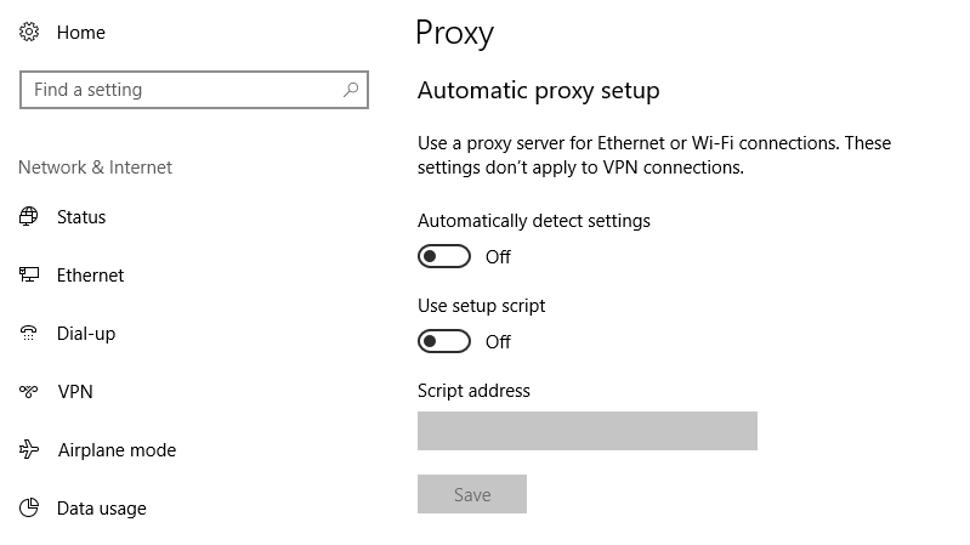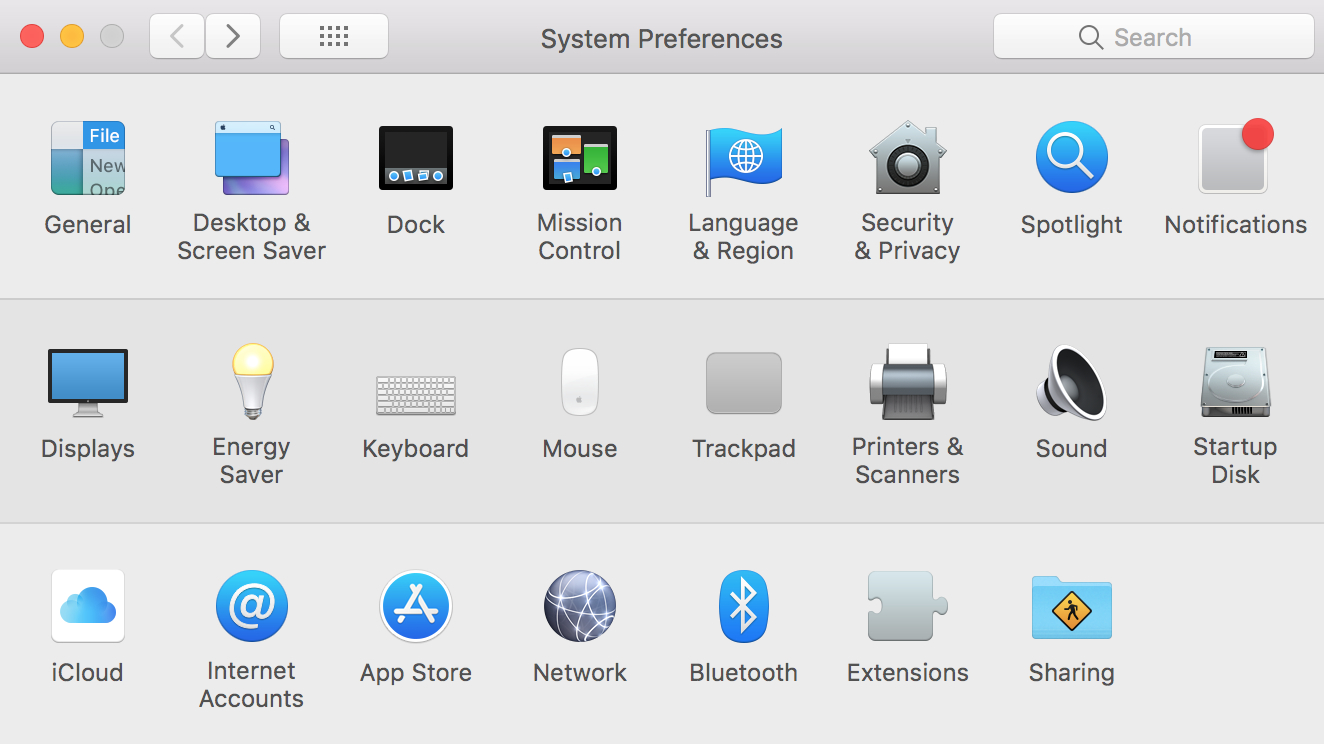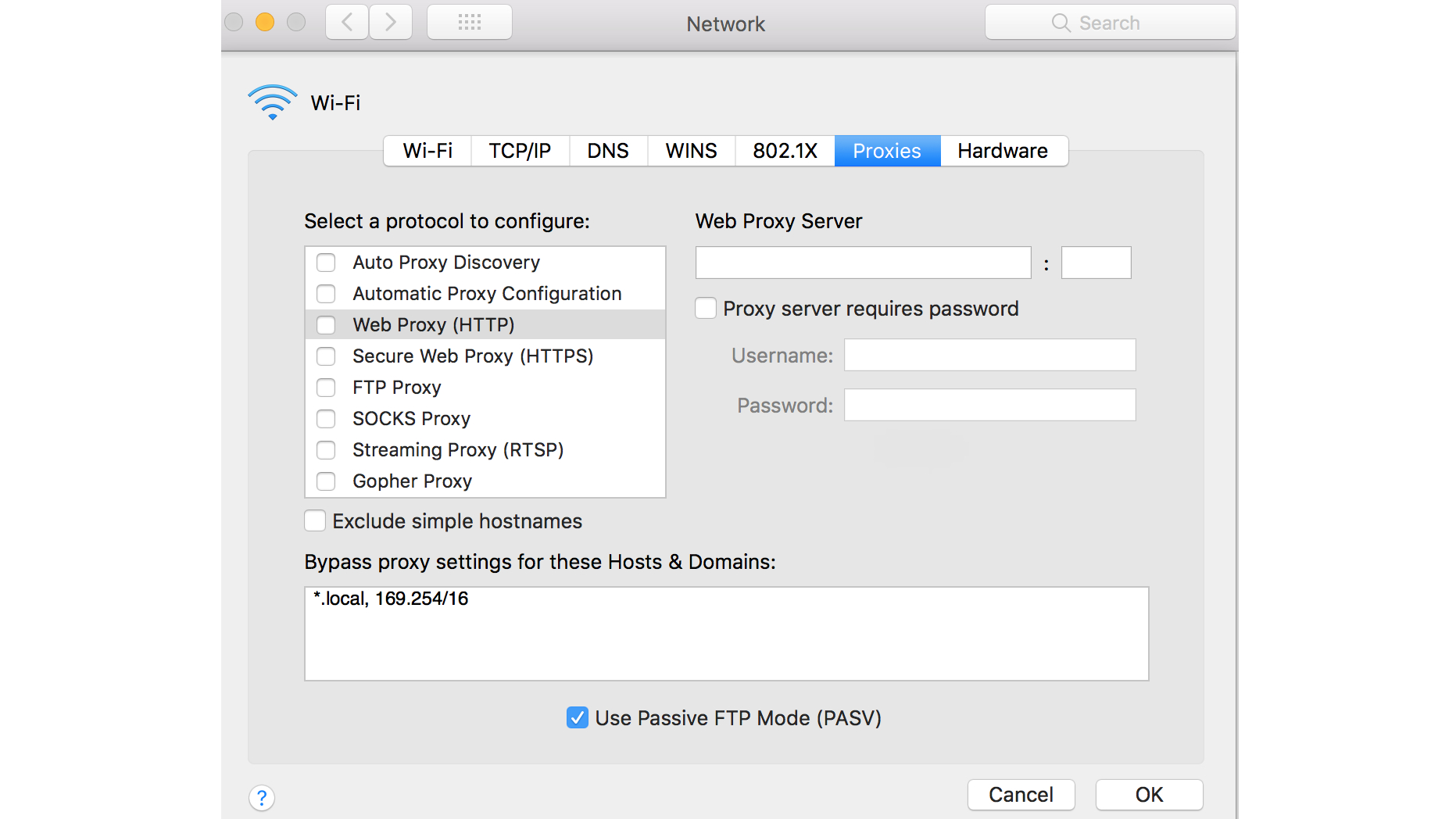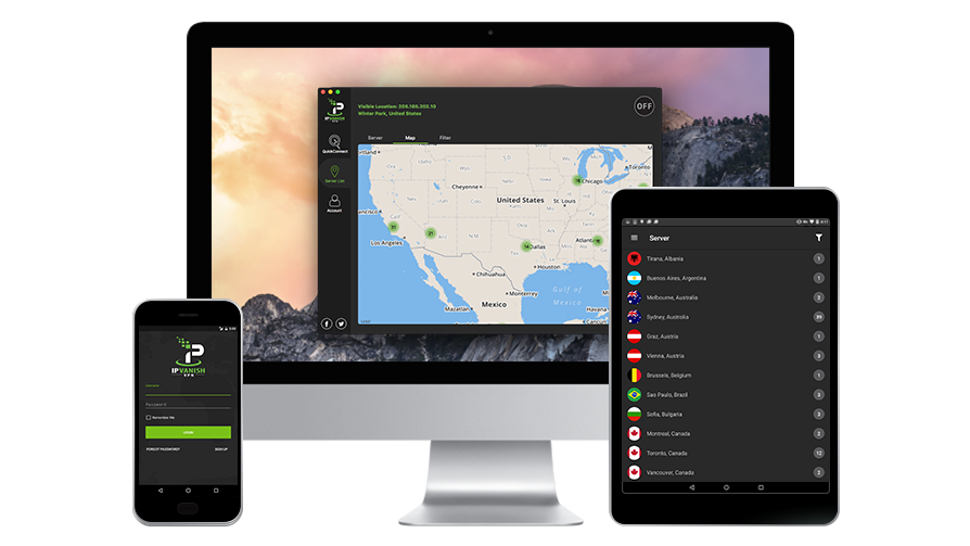How to set up a proxy server
Unblock websites and protect your network from malware

As an intermediary between your network and the websites you visit, a local proxy server can help improve the throughput of your broadband connection, restore order to a troubled network, and in some cases can help protect your network from malware infections.
What is a proxy?
A 'proxy' means a substitute. To the computers on the local network, a proxy server is another way to connect directly to the web by giving the user a different IP address. There are several different types of proxy servers. For example, a web proxy server keeps copies of recently accessed web pages on your hard disk.
- These are the best free proxy services and the best free privacy software available
When you navigate to a page, the proxy accesses the cached version if it's up to date. This is faster than downloading static files from the site.
Why people use proxy servers
You may be tempted to disable the proxy settings in your browser to view sites your boss would rather you didn't during work hours. However, to ensure that everyone on the network uses the proxy to access the internet, system administrators often block all access to the internet at their firewall, except traffic coming from or going to the proxy. So to access anything outside the local network, you must use the proxy.
Forcing everyone to use the proxy gives system administrators great control over what their users can access. The same principle can be used at home by parents and those simply keen to bolster security.
If you find unexpected access attempts in a firewall's log file from inside a proxy-protected network, they're probably coming from malware that doesn't know how to test for a local proxy and has tried to go directly online.
Public vs private proxy
While there are many different types of proxies, as we’ve mentioned, they can be sorted into two categories: public proxies and private proxies. As the name suggests, public proxies are free and open to the public, while private proxies are used by only one person.
Are you a pro? Subscribe to our newsletter
Sign up to the TechRadar Pro newsletter to get all the top news, opinion, features and guidance your business needs to succeed!
Because of the influx of users, public proxies are often far less effective than private ones. They’re also more dangerous, as the proxy operator can see your web traffic and potentially hijack your network.

How to set up a proxy server on Windows
Setting up a proxy on Windows is fairly easy, as newer Windows software automatically detects proxy settings.
To set up a proxy on Windows 10, simply head to your Settings screen and open the Network and Internet section. From there, click on the Proxy tab and choose from the list of available proxy settings.
For Windows 8 users, the steps are slightly different. Start by opening the PC Settings application and click on the Network Proxy icon. You’ll see a selection of proxy servers to choose from. Enter the proxy’s URL and then save your settings.
If your Windows network can’t automatically detect your proxy, you can set it up manually by entering the proxy’s specific IP address and the port number of the proxy. Your provider should have this information if you’re using a private or business proxy.
(Note you can check a list of common proxies here.)

How to set up a proxy server on Mac
Mac users can also take advantage of easy-to-use proxy services. To set up a proxy server on an Apple Mac, start by opening your System Preferences and clicking on the Network icon.
From there, scroll down and click the Advanced button. On the right, click on the Proxy tab. You’ll see a list of different proxy protocols.

You can check the Auto Proxy Discovery box if you want your Mac to deem whether a proxy is necessary and configure its settings automatically.
To set up a proxy manually, select the type of proxy you want to use and type its corresponding address and port number in the open fields. If the proxy is password-protected, check the Proxy Requires Password box and enter the username and password in the boxes provided.
Once you select a proxy, enter the address and port number in the space provided, click OK and you should be set.
Types of proxy servers
You’ll notice a number of different proxy protocols under your network settings, with each providing a different service. The three most common protocols include:
- HTTP: The most common type of proxy protocol, it’s mainly used for web browsing. This type of proxy is unsecured, so it’s best to avoid using it for sensitive sites.
- HTTPS: The secure version of HTTP. Choose this option when you want to send and receive sensitive information like passwords, credit card numbers, etc.
- SOCKS: A more versatile form of the HTTP protocol, SOCKS can handle more kinds of internet traffic and is often used for torrenting. Due to its popularity, it’s usually much slower than other proxies. It also supports HTTPS.

Using a proxy to unblock websites
Because a proxy reassigns your IP address, you’re able to access content that may not have been available in your geographic area. For example, someone in the US could use a proxy to connect to a network in the UK. Sites and services that are UK-based will then be available to them.
Of course, there’s always the issue of privacy when you’re dealing with proxies. If you want to browse the web anonymously, you may be better off using a VPN.

Proxy vs VPN: Which is better?
When it comes down to privacy, convenience, and ease of use, a VPN always wins. Whereas a proxy only covers the specific web browser you’re using, a VPN encapsulates your entire network.
By connecting to a secure VPN server, you’re able to take on another IP address while encrypting your entire network – giving you more options to browse, stream, and download without having to worry about your network being exposed.
More than that, VPNs are generally easier to use and offer more options when it comes to streaming. Popular paid services like ExpressVPN provide premium encryption protocols and offer secure VPN servers in cities around the world. See the link below for our picks for the best VPN services.
- We've also highlighted the best VPN services of 2019

Désiré has been musing and writing about technology during a career spanning four decades. He dabbled in website builders and web hosting when DHTML and frames were in vogue and started narrating about the impact of technology on society just before the start of the Y2K hysteria at the turn of the last millennium.